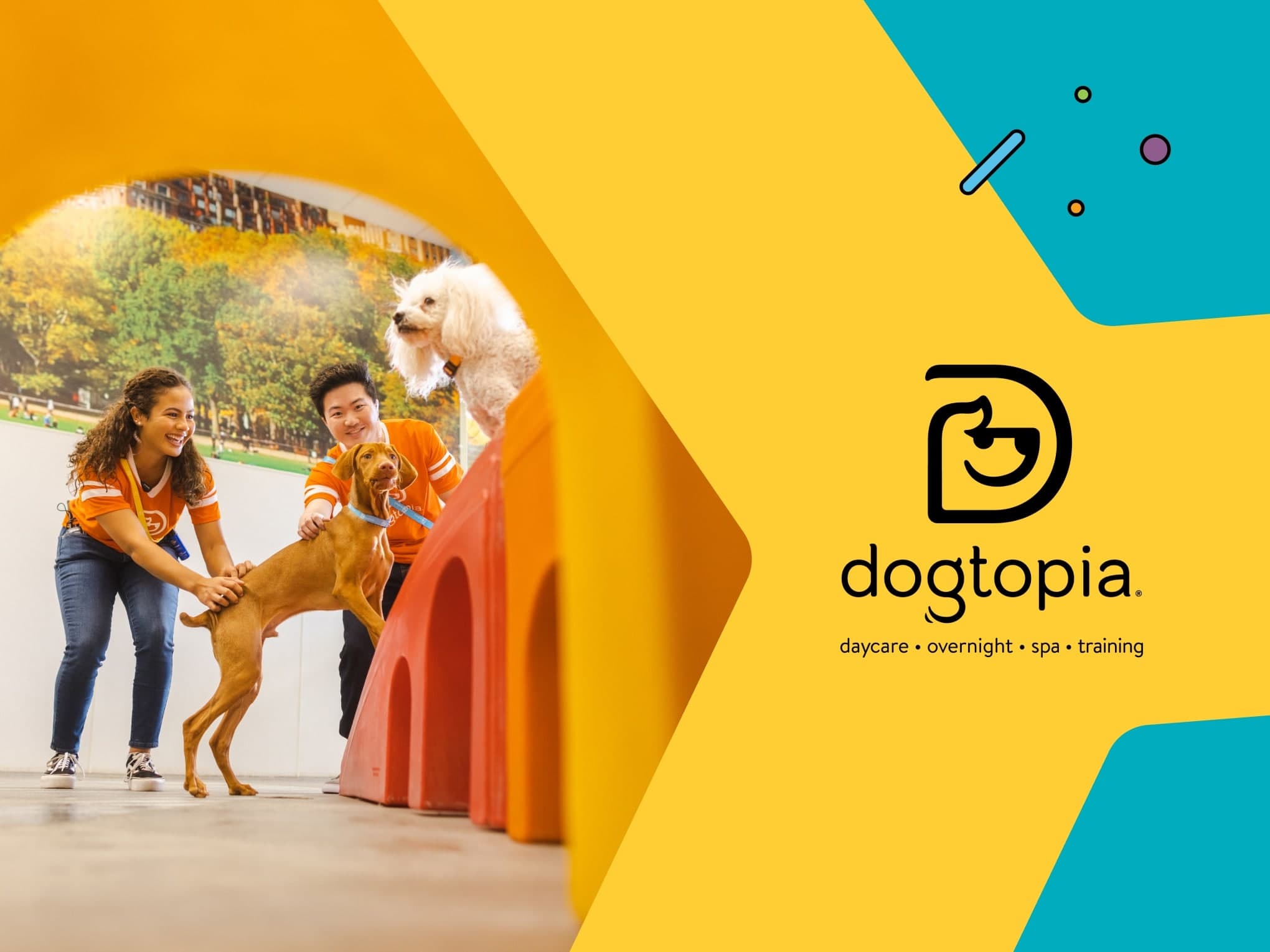Senior dogs are special, and they deserve our best. We spoke with Dr. Jenna Dockweiler, MS, DVM, DACT, CCRT, CVAT about how to give senior dogs the extra care they need to stay healthy, happy, and comfortable in their older years.
Dr. Dockweiler is an expert in veterinary medicine and a Veterinary Geneticist at Embark. She has cared for many geriatric patients during her career, especially in her practice of canine rehabilitation and acupuncture.
Keep reading to learn about how to make sure your dog is living their best life in their golden years.
When is a dog considered a senior?
The age when a dog is considered a senior can vary from breed to breed, as larger-breed dogs tend to age at different rates than smaller breeds. According to the American Veterinary Medical Association (AVMA), dogs are considered “senior” when they reach the last 25% of their expected lifespan for their breed.
Using data from the American Kennel Club, the AVMA estimates that “senior dog age” translates to the following age ranges:
- Small or toy breeds (less than 20 pounds): 8 to 11 years
- Medium-sized breeds (20 to 50 pounds): 8 to 10 years
- Large breeds (50 to 90 pounds): 8 to 9 years
- Giant breeds (more than 90 pounds): 6 to 7 years
In general, dogs go through five major life stages: puppy, young adult, mature adult, senior, and geriatric. However, keep in mind that different dogs age at different rates. The above guidelines are an estimate, not a one-size-fits-all rule.
If you know that your dog is entering their senior years, consider talking to your veterinarian about next steps for their care. These 10 questions to ask your veterinarian can help you prepare and get the most out of your next appointment.
If you don’t know how old your dog is, discover their estimated age and birthday with the Embark Age Test!
Feeding senior dogs
Do senior dogs need special diets? If your dog is approaching their golden years, you might be wondering about the best food for senior dogs or when to switch their diet to senior dog food.
There is no one universal senior dog diet that’s right for every dog. Your veterinarian might recommend a diet change if your dog has specific health concerns, such as arthritis, diabetes, or heart disease.
As dogs get older, they tend to become less active, which means they likely need fewer calories in their diet. Senior dogs might also experience some muscle loss, one of the key signs of senior status in dogs. If your dog’s lean body mass decreases with age, your veterinarian might recommend increasing the amount of protein in their diet.
If you notice that your senior dog is drinking a lot of water, that may be a sign something is amiss. Your dog should have access to plenty of fresh water and will likely need more frequent bathroom breaks as they get older, but excessive thirst can be a sign of illness. If you are concerned your dog is drinking and/or urinating excessively, contact your veterinarian.
Vitamins and supplements for senior dogs
Due to changes in their eating habits, physical activity, or muscle definition, senior dogs might benefit from supplements or added vitamins in their diet as they get older. Nutritional supplements should be tailored to a dog’s specific diet and health needs, so ask your veterinarian which ones, if any, would be right for your dog.
The senior life stage is when a veterinarian might recommend certain supplements, such as:
- Omega-3 fatty acids
- Prebiotics or probiotics
- Green-lipped mussel
- Medium-chain triglycerides (MCTs)
- Eye support
- Bladder support
Some senior dogs, especially larger breeds, may benefit from taking a joint supplement, such as Embark Joint, to help with mobility as they get older. Joint supplements usually include ingredients like glucosamine or chondroitin, which may help protect cartilage.
Behavior changes in senior dogs
It’s common to notice behavioral changes in senior dogs. Most of these behavior changes are not reasons to panic, but might require small adjustments to your routine or your home environment to make your dog more comfortable.
However, some behavior changes can be signs of underlying medical issues. Dr. Dockweiler explains what signs to look for and when it’s time to take your dog to the vet.
Reduced mobility in senior dogs
You might see your senior dog start to slow down as they get older. If they have reduced mobility or stamina compared to their younger years, you might want to adjust their exercise routine to allow for shorter walks or more frequent breaks.
Walking is generally still a great form of exercise for senior dogs. Mixing up their routine to include games of hide and seek, puzzle toys, or swimming can also give your dog the mental and physical exercise they need while minimizing the impact on their joints.
If you notice your senior dog slipping more often, consider placing non-slip mats on slippery surfaces, like linoleum or hardwood floors. Investing in a ramp, as well as other small changes to your environment, can help senior dog–proof your home and make it easier for your dog to move around. If your dog seems to be struggling with mobility, it’s time to contact your veterinarian for diagnostic and treatment options.
Sleeping habits in senior dogs
If your senior dog sleeps most of the day, that can be normal! It’s common for dogs to have less energy and need more sleep to recharge as they get older. While there is no set number of hours that a senior dog needs to sleep every night, keep an eye out for any sudden changes in their sleep patterns that might indicate something is amiss.
If your senior dog sleeps all day but is restless or pacing at night, it might be a sign of canine cognitive dysfunction (CCD). Similar to dementia in humans, CCD can lead to confusion, restlessness, vocalization, and disruptions in the sleep/wake cycle. If you notice any of these behaviors in your senior dog, speak with your veterinarian.
Unusual or excessive panting
If you notice your senior dog is panting more, there could be several reasons why. It’s normal for your dog to pant after a walk or if they’re hot—panting is how they cool off. Panting might also be a sign of anxiety, which is more common in dogs when they get older.
Older dogs, especially older large-breed dogs, are prone to a breathing condition called laryngeal paralysis. In this condition, the airway doesn’t fully open each time the dog takes a breath. Symptoms may include loud breathing, exercise intolerance, or (in severe cases) collapse. Always consult your veterinarian if you’re concerned your dog’s panting may not be normal.
If you notice your dog is panting without an immediate cause (like exercise), the panting seems excessively loud, or if the panting persists for several days, it might be time to visit your veterinarian.
Accidents in the house
If your senior dog is having episodes of incontinence (losing control of their bladder or bowel), it could simply mean that their muscles are weaker and they can’t hold it in for as long as they used to. Try adjusting their schedule to allow for more frequent walks or potty breaks. Taking your dog outside immediately after mealtime or after waking up can help.
In some cases, having accidents in the house could indicate an underlying medical issue, such as an infection, gastrointestinal upset, or kidney disease. Any time you notice changes in urination or defecation habits, especially if they are sudden, talk to your veterinarian.
To manage accidents at home, some of the same strategies used for puppies can help with senior dogs. Use dog diapers or waterproof pads to contain the mess, and give your dog regular baths to maintain proper hygiene. Be sure to clean up any messes with a pet-approved enzymatic cleaner to get rid of any lingering smells.
Caring for your dog at every age
As dogs age, their social, behavioral, and health needs change. Keep reading to learn more about the different dog life stages and how to take care of your dog’s health throughout their life.















